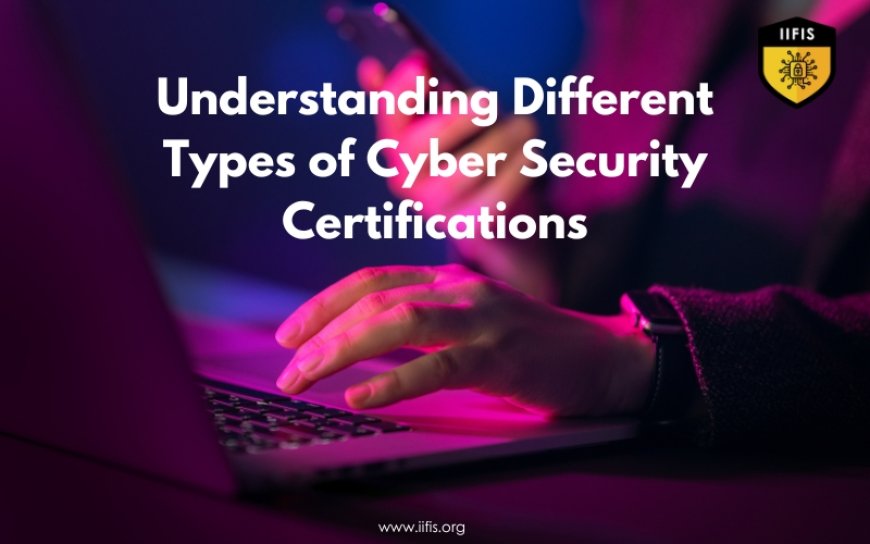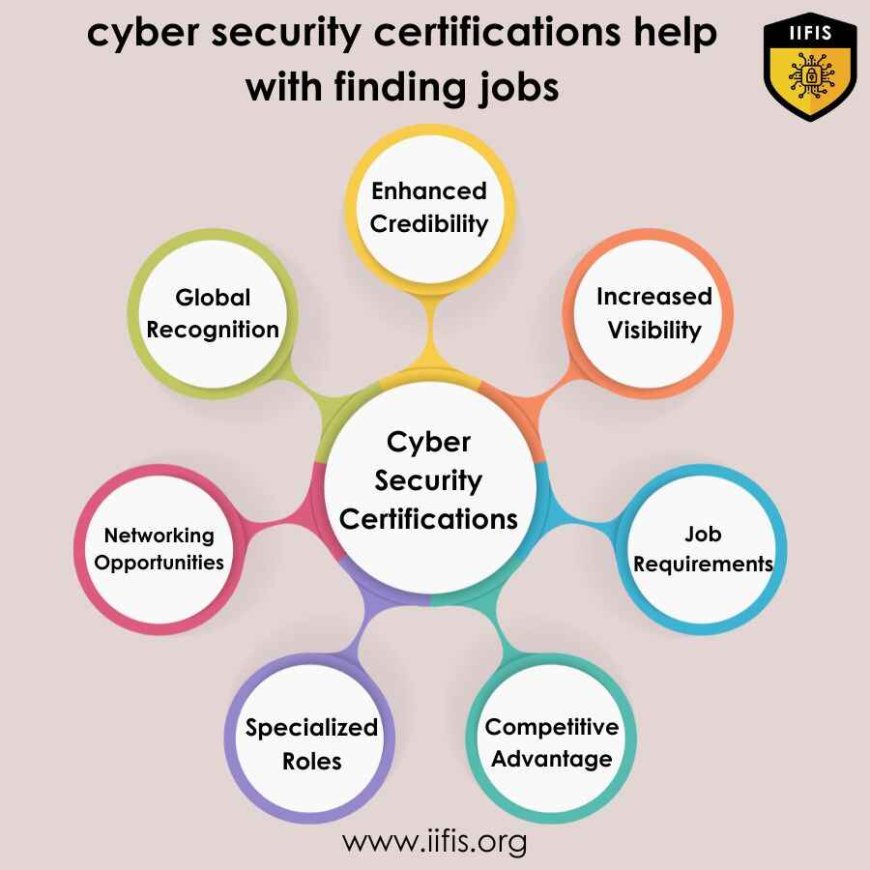Understanding Different Types of Cyber Security Certifications
Discover different Cyber Security Certifications to improve your skills and job opportunities. Find out which one suits you best.

A new graduate of computer science who is excited to start a career in cybersecurity is confused by the variety of cybersecurity certifications that are offered in the industry. The demand for many certificates, such as CISSP, CEH, and others, overwhelms her when she peruses job advertisements, leaving her unclear about where to begin. Sarah is faced with the difficult chore of selecting the appropriate certificates to advance her career; she looks for assistance to manage this confusing terrain.
After doing a little research on the internet, Sarah came across a blog post titled "Understanding Different Types of Cyber Security Certifications." She clicks on the blog out of curiosity and starts reading through its contents. Sarah has a wave of relief as she reads the thorough explanation of each Cyber Security Certification, including its goals, requirements, and possible career paths. Equipped with this improved understanding, she acquires precision and self-assurance in choosing the qualifications that most closely correspond with her professional goals.
What is Cyber Security
-
Protection:
Protecting digital data from theft, loss, and illegal access is the goal of cybersecurity.
-
Threats:
It covers protecting against criminals, viruses, malware, and hackers, among other cyber threats.
-
Security Procedures:
Using technologies, tactics, and strategies to safeguard computers, networks, and data is known as cybersecurity.
-
Avoidance:
Its goal is to stop hacking, safety mistakes, and other online dangers.
-
Identification:
It contains techniques for spotting and recognizing security breaches and incidents when they do occur.
-
Response:
Reacting quickly to security issues to minimize damage and resume regular operations is another aspect of cybersecurity.
-
Continuous Improvement:
Risk assessment, defense improvement, and adaptation to emerging dangers and weaknesses are ongoing processes.
-
Compliance:
To protect sensitive data, cybersecurity in many businesses also entails applying rules and guidelines.
-
Education and Awareness:
It involves informing consumers about frequent cyber threats and providing best practices for keeping secure online.
-
Collaboration:
To improve overall security, cybersecurity frequently requires cooperation between individuals, businesses, and governments to exchange resources and information.
The proliferation of different types of cybersecurity certifications
-
The number of qualifications available in the cybersecurity field has increased significantly in recent years.
-
These certificates are intended to demonstrate individuals' proficiency and knowledge in a range of cybersecurity-related areas.
-
Certifications can range in level from CompTIA Security+, which is entry-level, to Certified Information Systems Security Professional (CISSP), which is more advanced.
-
Every certification concentrates on a certain aspect of cybersecurity, including cloud security, network security, or ethical hacking.
-
The increasing number of cybersecurity certifications is indicative of the growing need for qualified experts in the industry.
-
Employers place a higher value on employing people with specialized knowledge and training because of the advanced nature and evolution of cyber-attacks.
-
Certifications give businesses a uniform method to evaluate applicants' abilities and credentials.
-
A person's credibility can be improved and their chances of job progression in cybersecurity can be increased by earning a certification.
-
But for prospective professionals, sorting through the vast array of credentials available can be confusing.
-
It is important to investigate and comprehend the applicability of various certificates to particular professional objectives.
-
People can successfully demonstrate their competence and stand out in a competitive job market by choosing credentials that match their interests and goals.
-
The increasing number of cybersecurity certifications highlights how active the field is and how much talent is still needed to defend against cyberattacks.
How can cyber security certifications help with finding jobs?
Cybersecurity certifications are quite beneficial for those who want to grow in the industry. These certifications offer concrete evidence of cybersecurity knowledge and competence, which can be used to get access to specialized positions or to increase trust. Let's explore how earning certificates can affect your professional path.
-
Enhanced Credibility: Obtaining a certification improves your employability by attesting to your proficiency and knowledge in cybersecurity. They provide hiring managers with verifiable proof of their expertise and understanding of the industry, boosting their confidence in your talents.
-
Increased Visibility: Autonomous applicant tracking systems (ATS) are widely used by businesses to search resumes for particular keywords and qualities. Your resume's visibility and likelihood of being viewed by hiring managers can both be improved by having relevant cybersecurity certifications represented.
-
Alignment with Job Requirements: Cybersecurity job listings frequently list particular certifications as required or desirable credentials. Having the necessary certificates improves your candidacy for these roles and raises your chances of getting called in for an interview.
-
Competitive Advantage: Having cybersecurity certifications makes you stand out from other applicants in the competitive job market of today, particularly if you lack formal training or credentials. It indicates your commitment to professional development and differentiates you as a true contender for the job.

5.Access to Specialized Roles: Specialized knowledge and experience may be necessary for certain cybersecurity professions, such as ethical hacking, penetration testing, or cloud security. Possessing pertinent certificates in these domains entitles you to obtain specialist positions, hence improving your career prospects.
-
Networking Opportunities: A common step in obtaining cybersecurity certifications is attending conferences, workshops, and training sessions where you can connect with professionals in the field. Developing ties with mentors, instructors, and classmates can result in suggestions, employment referrals, and insider knowledge about openings.
-
Global Recognition: Numerous cybersecurity certificates are acknowledged and widely accepted globally. Possessing internationally recognized certificates can improve your employability and lead to chances in a variety of locations and industries, whether you're seeking work locally or abroad.
Cybersecurity certificates are crucial resources for people like Sarah, a recent computer science graduate, who must navigate the intricacies of the cybersecurity sector. Gaining a competitive edge in the job market, these certificates provide observable advantages like improved credibility, greater visibility in job searches, and alignment with employment criteria. Additionally, they provide access to specialized positions, promote networking opportunities, and gain worldwide recognition, all of which broaden job options both domestically and abroad. Certifications are important tools for proving knowledge and proficiency in the quickly changing field of cybersecurity, making workers stand out and pursue fulfilling professions. People may successfully show their talents and support the group effort to guard against cyber risks in an interconnected society by choosing certificates that match their interests and goals.
























